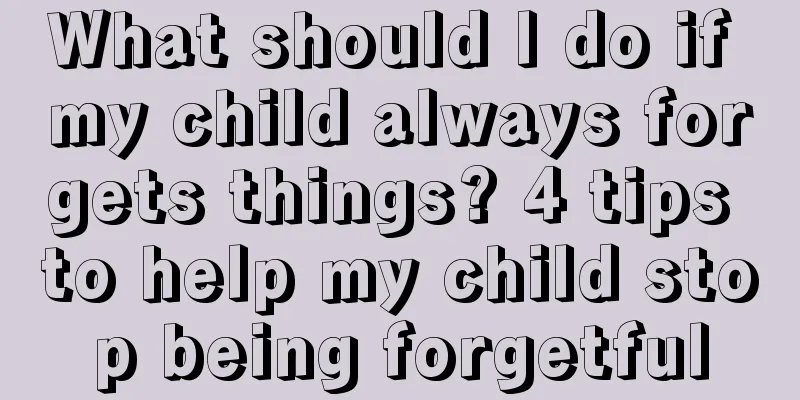3 things you shouldn't do in front of your children

|
First, don’t quarrel in front of your children, as quarreling will hurt their young hearts. Second, don’t complain in front of your children, as negative energy should not be passed on to them. Third, don’t beat or scold your children, as positive education is always the most important. Things not to do in front of your childrenFirst thing: Don’t argue in front of your kids When a family lives together, it is inevitable that there will be some friction. However, when quarreling, I suggest that mothers try to avoid children, because for them, the people in this family are the closest people. If there is a conflict between you, it will cause great psychological harm to the children. Especially sometimes, when the couple quarrels, some mothers like to talk about their children. Disharmony between parents will reduce the happiness of the children. If they think that the conflict between you is caused by them, they will feel very panic and helpless. If they grow up in such an environment for a long time, they will become very inferior in the future. The second thing: resist the urge to complain in front of your children Some mothers who have been wronged by their husbands or mothers-in-law often complain in front of their children. Maybe your original intention is to let them know how difficult your life is, but such negative energy will form a shadow in their minds, and they will think that their father and grandmother are bad people, which will only make your family more disharmonious. So everyone should know that life is not easy for anyone, but children are a blank sheet of paper. As a competent mother, you cannot suggest your pain to them. The third thing: refrain from beating or scolding your children Many parenting experts now do not recommend parents to beat or scold their children, because this is likely to lead to two consequences. The first is that the child's character will become timid and cowardly, and even have an inferiority complex; the second is that under your influence, the child's temper will become particularly irritable, and he will get used to using violence to solve problems. Therefore, this is not a healthy way of education. When children make mistakes, we must learn to treat them rationally and let them understand the truth of the matter. This is more effective than letting them be afraid. Taboos that parents need to know1. At 2-3 years old, babies know that their mother is a woman and their father is a man, and that men and women are physically different. Parents should avoid raising boys as girls and making them wear skirts. Before the age of 2 or 4, children are curious about body parts and will touch their genitals, etc. However, children at this stage have the same motivation to observe genitals as they do to observe cars on the street. Once they understand the differences, they will not have much interest. It is foolish for parents to impose adult concepts on their children. 3. At the age of 5-8, children prefer to interact with the same sex. At this time, parents should tell their children not to let others touch their sensitive parts, not to touch others, and not to have any other behaviors. 4. At the age of 9-10, children begin to develop gender awareness and are very sensitive to sex. Parents should not let their children see sex or overly pornographic images to avoid adverse effects. How can parents communicate with their children if they are disobedient?First, when children are playing, it is best not to talk to them. If parents must talk to their children at this time, it will only cause children to resist more strongly. Second, listen patiently to the child's true inner thoughts. Parents can first talk to the child about the feeling of playing games, "Why do you feel happy playing ××", "Why do you feel uncomfortable not playing ××", "What do you like to play ××", etc. Wait patiently for the child to finish speaking. ? Third, don’t always start your conversation with “you”. Talk more about the impact of your child’s behavior on you and use “I” more often. For example, “I’m worried about…” This way, the communication between parents and children will be less tense. Fourth, try not to quarrel with your children. When communicating with your children, do not get excited and lower your voice. When quarreling occurs, parents should try to stop it. If both parties are "angry", it is better to suspend the conversation and continue it at another time. Fifth, work with your child to develop specific, detailed rules, such as which day they can play and how long they can play. Write these specific rules clearly on paper and post them on the computer desk. The rest is to strictly enforce the rules. Parents should not always say vaguely, "Play during the holidays." These vague answers can easily make children feel that their parents are perfunctory and deceiving them. How to manage your child's emotions1. Teach children to recognize and express emotions Parents should teach their children to recognize the existence of different emotions, such as how people express their emotions when they are happy, angry, furious, and frustrated. Because only when children recognize these emotions can they express their emotions correctly and learn to use the right way to deal with them. 2. Teach children to vent negative emotions appropriately When people are depressed, if they do not find opportunities to vent their emotions, it will cause physical and mental harm. Therefore, parents should teach their children to express their negative emotions. When children are depressed, they can take them to run, climb mountains, and do more exercises to relax and relieve stress. This will not only exercise the body, but also vent emotions. 3. Parents should set a good example Parents should be responsible for their own emotions, because their every move will affect their children, and one day the children will reflect them back to you intact. Try to separate your emotions from your children, and deal with your own tiredness, complaints, grievances, and negative emotions. If you find it difficult to do so, you can spend some time reading some books on this subject. Through books, you can discover your own problems and improve them. 4. Teach children to face life optimistically Positive emotional experience can stimulate human potential and maintain mental health; negative emotional experience can make people depressed and harmful to physical and mental health. Therefore, it is very important to teach children to face life optimistically. As parents, we should cultivate children to face life optimistically. First of all, we should have an optimistic attitude towards life. Children's emotions are directly affected by their parents' behavior. When getting along with children, parents must be optimistic, believe in their children, and give encouragement and support. |
<<: How to deal with children's rebellious period
Recommend
What are the health hazards of drinking fake milk for babies? Common knowledge of children's food safety
Milk is rich in protein and nutrients, and many p...
How to tell if Mama's Choice laundry detergent is real or fake? How about Mama's Choice natural soap liquid?
Nowadays, it is a must to check whether the goods...
How to treat cold hands and feet after childbirth How to treat cold hands and feet after childbirth
Many mothers tend to feel cold hands and feet aft...
Is it necessary to use morning urine for pregnancy test? Can urine from other times be used for pregnancy test?
When using a pregnancy test stick to detect pregn...
What style of milk powder box is good? Advantages and disadvantages of different sizes
The first type of independent milk powder box is ...
What is induction labor? What is suction labor?
Childbirth refers to the process of giving birth ...
Why can't you get pregnant with your second child? 10 truths about why you can't get pregnant with your second child
After the second-child policy was opened, many pa...
Does eating durian during breastfeeding affect the baby? Will the baby be allergic to durian during breastfeeding?
What the mother eats during breastfeeding general...
Can pregnant women eat goose meat to supplement protein?
Pregnant women can eat goose meat, which is a hig...
How about the Meco Blue Fatty milk powder? Dedicated to maintaining the baby's immune system
All mothers know about Meco-Breast Milk Powder be...
Is nebulization useful for children with bronchitis? How many days should nebulization be used for children with bronchitis?
For pediatric bronchitis, nebulization treatment ...
Benefits of drinking mung bean soup for pregnant women Taboos of drinking mung bean soup for pregnant women
Mung bean soup is one of the most common cooling ...
8 things to know about fluoride treatment for children's teeth
When the baby starts to grow teeth, parents must ...
Can I eat snowy mooncakes during breastfeeding? Can I eat snowy mooncakes after I have given birth?
It is the Mid-Autumn Festival now, and various mo...
Why do children love to rub their eyes? Beware of 3 diseases
The first is allergic eczema. When it itches, you...









